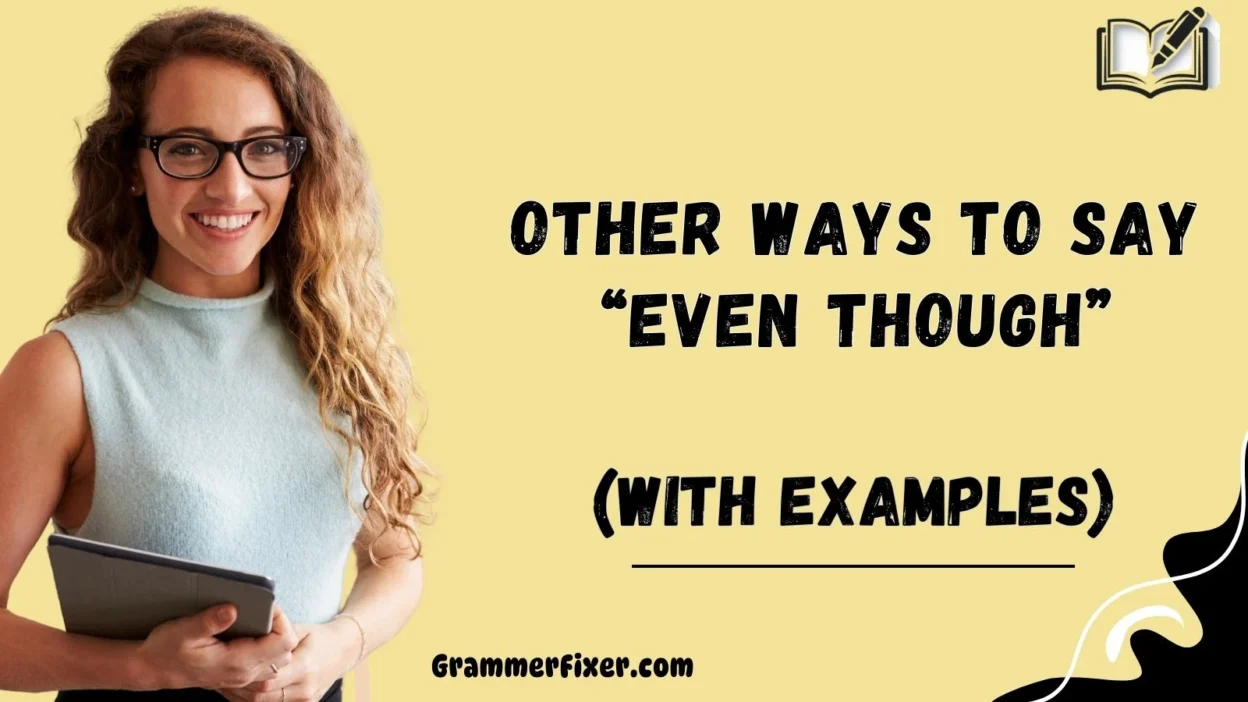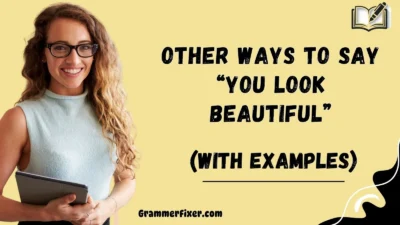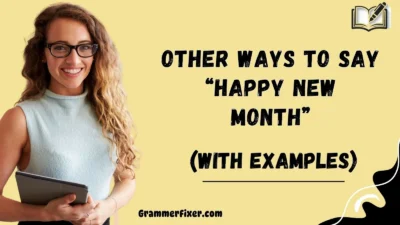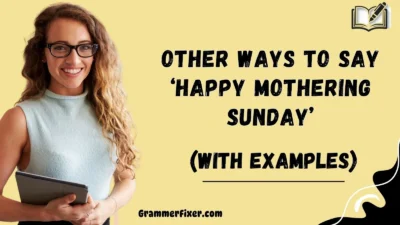Finding the right words is more than just grammar—it’s about expressing care, empathy, and intention. Sometimes, the phrase “even though” may feel repetitive, and choosing a thoughtful alternative can make communication warmer, more personal, and meaningful.
Whether you’re writing an email, essay, or heartfelt message, these alternatives will help you sound more natural, professional, and expressive.
What Does “Even Though” Mean?
“Even though” is a subordinating conjunction used to introduce a contrasting idea. It highlights a situation where the main clause still stands, despite an opposing or surprising condition.
Example: Even though it was raining, we went for a picnic.
Here, the rain (unexpected) doesn’t stop the picnic (main event).
When to Use “Even Though”?
You should use “even though” when you want to:
- Introduce a contrast in a sentence.
- Show unexpected resilience or outcomes.
- Express surprising differences in tone, behavior, or events.
- Add a nuanced touch in formal, academic, or casual writing.
Is It Professional/Polite to Say “Even Though”?
Yes, “even though” is both professional and polite. It works well in business communication, academic writing, personal notes, and creative expression. However, for more formal contexts, synonyms like “although” or “whereas” may be preferred.
Pros or Cons
Pros:
- Clear and widely understood.
- Works across formal and casual contexts.
- Smoothly introduces contrasting ideas.
Cons:
- Can sound repetitive if overused.
- Sometimes too casual for highly academic or legal documents.
1. Although
Meaning: A formal synonym for “even though,” introducing a contrast.
Detailed Explanation: Common in academic writing and formal correspondence.
Scenario Example: Although it was raining, the team continued the hike.
Best Use: Academic papers, professional writing.
Worst Use: Overly casual chats—it may sound stiff.
Tone: Neutral, formal, polished.
2. Though
Meaning: A shorter, casual variant of “although.”
Detailed Explanation: Works well in spoken English and casual writing.
Scenario Example: I was tired; I managed to finish my work, though.
Best Use: Conversations, light writing.
Worst Use: Legal or academic contexts.
Tone: Friendly, relaxed.
3. While
Meaning: Expresses contrast, often highlighting two situations happening simultaneously.
Detailed Explanation: Can also mean “at the same time”, so context is key.
Scenario Example: While the weather was bad, the picnic was still enjoyable.
Best Use: Balanced comparisons, professional reports.
Worst Use: Where it causes ambiguity with time reference.
Tone: Formal, flexible.
4. Whereas
Meaning: Highlights a sharp contrast between two opposing ideas.
Detailed Explanation: Frequently used in legal documents, debates, and formal writing.
Scenario Example: Whereas my sister prefers indoors, I enjoy outdoor activities.
Best Use: Formal writing, comparisons.
Worst Use: Casual conversation.
Tone: Formal, structured.
5. Nevertheless
Meaning: Emphasizes persistence or continuation despite difficulty.
Detailed Explanation: Stronger and more emphatic than “even though.”
Scenario Example: The challenge was tough; nevertheless, he overcame it.
Best Use: Motivational, academic, speeches.
Worst Use: Casual texting.
Tone: Inspiring, resilient.
6. Despite
Meaning: A preposition showing contradiction or unexpected outcome.
Detailed Explanation: Often followed by a noun or gerund.
Scenario Example: Despite studying all night, the exam was challenging.
Best Use: Academic, formal contexts.
Worst Use: Spoken English—it can sound stiff.
Tone: Precise, professional.
7. In Spite Of
Meaning: Similar to “despite,” but slightly more conversational.
Detailed Explanation: Often used in personal communication and literary writing.
Scenario Example: In spite of the inclement weather, the event continued.
Best Use: Balanced tone, semi-formal writing.
Worst Use: Overly formal reports.
Tone: Warm, expressive.
8. Albeit
Meaning: A more antique, formal synonym meaning “although.”
Detailed Explanation: Often seen in literary or academic writing.
Scenario Example: He accepted the job, albeit with reservations.
Best Use: Academic, literary, creative writing.
Worst Use: Text messages or casual emails.
Tone: Formal, sophisticated.
9. Yet
Meaning: Shows surprise or contradiction in a brief way.
Detailed Explanation: Often placed at the beginning of a sentence.
Scenario Example: She is young, yet her wisdom surpasses her age.
Best Use: Literary, persuasive writing.
Worst Use: Technical papers (too brief).
Tone: Strong, poetic, concise.
10. However
Meaning: A transitional adverb showing contrast.
Detailed Explanation: Stronger than “even though,” often used to pivot arguments.
Scenario Example: We planned the trip; however, his health did not allow it.
Best Use: Business writing, presentations, academic work.
Worst Use: Very casual texting.
Tone: Professional, transitional.
11. On the Other Hand
Meaning: A phrase to present a different or opposing viewpoint.
Detailed Explanation: Common in comparisons or when weighing options.
Scenario Example: City life is exciting. On the other hand, the countryside offers peace.
Best Use: Essays, debates, balanced discussions.
Worst Use: Very short, casual sentences.
Tone: Formal, explanatory.
12. Conversely
Meaning: Indicates a direct opposite relationship.
Detailed Explanation: Stronger and more logical than “even though.”
Scenario Example: Technology connects people; conversely, it can also isolate them.
Best Use: Academic, argumentative contexts.
Worst Use: Personal storytelling (sounds rigid).
Tone: Scholarly, logical.
13. Notwithstanding
Meaning: A formal synonym for “despite” or “even though.”
Detailed Explanation: Adds antiquity and elegance to writing.
Scenario Example: Notwithstanding his illness, his performance was stellar.
Best Use: Formal, legal, or academic writing.
Worst Use: Everyday conversation.
Tone: Elegant, formal, dignified.
14. Nonetheless
Meaning: Similar to “nevertheless,” it shows persistence despite difficulty.
Detailed Explanation: Often conveys determination or resilience.
Scenario Example: It was raining heavily; nonetheless, we enjoyed the walk.
Best Use: Motivational, creative writing.
Worst Use: Overly formal settings.
Tone: Hopeful, strong, encouraging.
15. Regardless
Meaning: Expresses continuation without being affected by a condition.
Detailed Explanation: A single-word alternative that sounds firm.
Scenario Example: She continued the project regardless of limited resources.
Best Use: Firm professional communication.
Worst Use: Academic writing—it lacks nuance.
Tone: Direct, assertive.
16. Even If
Meaning: Expresses a hypothetical contrasting situation.
Detailed Explanation: Different from “even though,” as it shows possibility, not fact.
Scenario Example: I’ll support you even if others don’t.
Best Use: Encouraging, supportive contexts.
Worst Use: Legal or technical texts.
Tone: Warm, empathetic.
17. Contrary To
Meaning: Indicates a disagreement or contrast with expectation.
Detailed Explanation: Best for factual or logical comparisons.
Scenario Example: Contrary to the forecast, the sun came out.
Best Use: Reports, factual writing.
Worst Use: Casual small talk.
Tone: Informative, precise.
18. Yet Still
Meaning: Adds extra emphasis to a surprising persistence.
Detailed Explanation: Stronger than “yet,” highlighting determination.
Scenario Example: He faced setbacks, yet still achieved great things.
Best Use: Inspirational writing, speeches.
Worst Use: Strictly academic contexts.
Tone: Emotional, motivational.
19. All the Same
Meaning: Shows that something remains true despite an obstacle.
Detailed Explanation: More casual and conversational.
Scenario Example: The road was rough, but she persevered all the same.
Best Use: Storytelling, friendly tone.
Worst Use: Legal writing.
Tone: Casual, empathetic.
20. Be That As It May
Meaning: A more old-fashioned phrase meaning “even though that is true.”
Detailed Explanation: Adds classical style to arguments or narratives.
Scenario Example: Be that as it may, we must proceed with the plan.
Best Use: Speeches, literary writing.
Worst Use: Text messaging.
Tone: Formal, persuasive.
21. For All That
Meaning: Emphasizes despite everything mentioned.
Detailed Explanation: A softer, almost poetic form of concession.
Scenario Example: For all that he doubted her, she proved him wrong.
Best Use: Creative writing, personal notes.
Worst Use: Corporate documents.
Tone: Poetic, reflective.
22. In Any Case
Meaning: Dismisses a condition while reinforcing the main point.
Detailed Explanation: Common in casual and business conversation.
Scenario Example: The weather wasn’t great; in any case, the meeting was enriching.
Best Use: Business or friendly conversations.
Worst Use: Formal legal writing.
Tone: Practical, conversational.
23. Still and All
Meaning: A colloquial version of “nevertheless.”
Detailed Explanation: Used in American English, often spoken.
Scenario Example: The film had flaws; still and all, it was enjoyable.
Best Use: Informal writing, dialogue.
Worst Use: Academic contexts.
Tone: Casual, easygoing.
24. Yet For All
Meaning: A more poetic form of “despite everything.”
Detailed Explanation: Creates emphasis and a literary feel.
Scenario Example: Yet for all his efforts, success seemed distant.
Best Use: Creative writing, poetry.
Worst Use: Everyday communication.
Tone: Dramatic, literary.
25. Even With
Meaning: Shows persistence in the presence of challenges.
Detailed Explanation: Often introduces unexpected achievements.
Scenario Example: Even with limited resources, the team excelled wonderfully.
Best Use: Motivational writing, workplace success stories.
Worst Use: Highly formal documents.
Tone: Encouraging, inspiring.
26. With All
Meaning: A softer, somewhat literary synonym for “despite.”
Detailed Explanation: Often adds an elegant tone to writing.
Scenario Example: With all his faults, he was an inspiring leader.
Best Use: Literary essays, creative works.
Worst Use: Business or academic papers.
Tone: Poetic, graceful.
27. Just the Same
Meaning: Reinforces that something is true despite a condition.
Detailed Explanation: Very casual and natural in conversations.
Scenario Example: The curry was spicy, but delicious just the same.
Best Use: Friendly dialogue, casual emails.
Worst Use: Academic contexts.
Tone: Warm, conversational.
28. Despite That
Meaning: Emphasizes a continued outcome in contrast.
Detailed Explanation: A flexible alternative to “even though”.
Scenario Example: She was tired; despite that, she managed to work.
Best Use: Neutral tone, professional communication.
Worst Use: Literary writing (sounds plain).
Tone: Balanced, simple.
29. Even So
Meaning: Expresses surprising persistence or truth.
Detailed Explanation: Slightly poetic, but also conversational.
Scenario Example: It wasn’t easy; even so, they persevered.
Best Use: Storytelling, motivational tone.
Worst Use: Overly technical writing.
Tone: Gentle, inspiring.
30. Yet Nevertheless
Meaning: A reinforced version of “nevertheless,” adding emphasis.
Detailed Explanation: Strongly conveys persistence despite obstacles.
Scenario Example: The journey was tough; yet nevertheless, they succeeded.
Best Use: Speeches, inspirational contexts.
Worst Use: Business or academic papers (too wordy).
Tone: Emphatic, dramatic.
Conclusion
Choosing the right alternative to “even though” can transform your writing and speech. Some synonyms, like although, while, and whereas, fit best in formal or academic settings. Others, like even so, all the same, and just the same, shine in casual or creative conversations.



